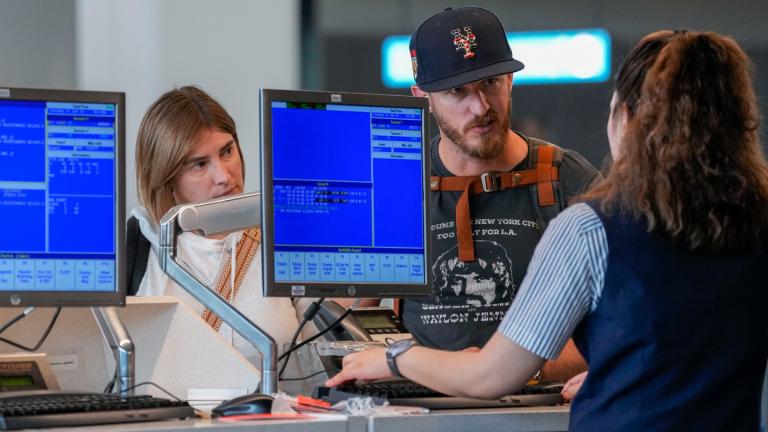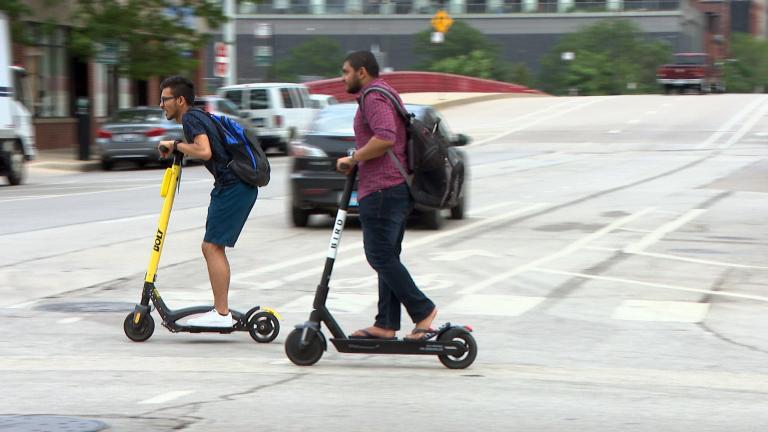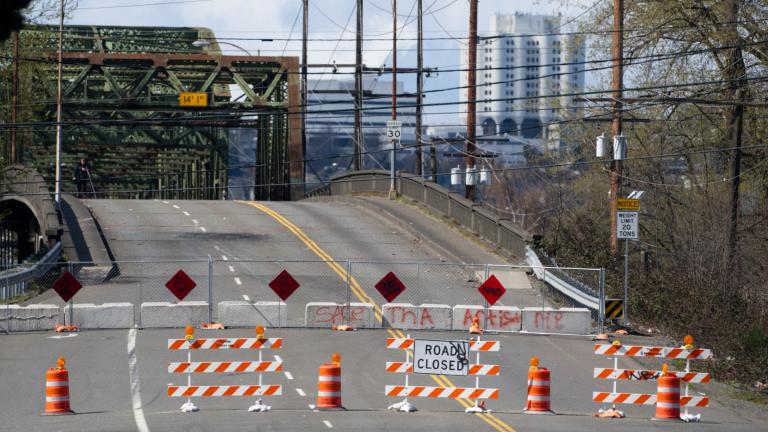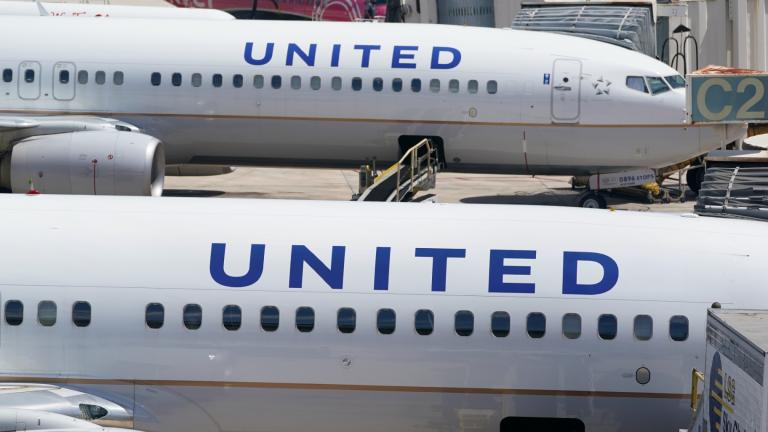Facing customer complaints about reliability and safety, and an employee shortage compounded by the pandemic, CTA President Dorval Carter on Thursday outlined a strategic plan to overhaul the transit agency’s service and bolster its role in the Chicago area’s transportation network.
“Our service is not meeting our high expectations for reliability and on-time performance,” Carter said in a speech at the City Club of Chicago. “I want (customers) to know that we hear you, we share your concerns, and we are working hard to address these issues.”
Carter used the address to unveil the CTA’s new “Meeting the Moment” initiative aimed at moving the much-used and much-critiqued transit service into a “post-pandemic” future. Key to that future, he said, is ensuring that passengers can count on buses and trains to run as scheduled – something that’s been challenging, given ongoing COVID-19-related absences and the so-called “Great Resignation.”
“Our peer transit agencies across the nation and the airline industry are experiencing similar workforce shortages,” Carter said. “As a result, today we are unable to put some buses and trains into operation due to a lack of manpower, directly impacting customer wait times and service reliability.”
Carter said the agency’s engaged in aggressive recruiting campaigns, recently graduating one of its largest classes of new bus operators since the pandemic. But he acknowledged that rebuilding a workforce will take time, given that the CTA’s lost nearly 1,100 of the union employees that comprise much of its workforce.
To adjust, he announced a plan to roll out new bus and train schedules, with an eye toward equity, ridership patterns, and staffing levels.
“Let me be clear about one thing: this is not a service cut. We are realigning our scheduled service to match the service we are providing today,” Carter said. “There is no change in our service hours, no routes will be eliminated, and just as importantly, no employees will be laid off. These schedule changes mean customers will have more consistent wait times that may be marginally longer, but most importantly, customers will see fewer instances of inconsistent wait times and fewer occurrences of big gaps in service.”
A related service gripe has been major issues with the CTA’s transit trackers, including many so-called “ghost” buses and trains that appear on a tracking app but never materialize in real life. Carter said the agency plans investments to improve the technology and pointed out that since the trackers rely in part on the CTA’s published schedules, the announced realignment will also improve reliability.
Carter also acknowledged widespread worries about the safety of riders and employees. He highlighted the CTA’s partnership with the Chicago Police Department, its investment in new security guards, and said the agency also plans to sign a new contract for K9 security units as well.
But he also acknowledged the fact that many bus and train passengers are struggling with homelessness, mental health problems, and substance use disorder.
“While CTA has typically never played a role in the provision of social services, I believe it is time to address these types of challenges on CTA with the type of new tools and strategies that many neighborhood organizations use in their communities,” Carter said.
Carter highlighted a pilot program with the Night Ministry to aid people using the CTA as a shelter of last resort, and said the agency is exploring additional partnerships to ensure it’s caring for members of the community in addition to getting people where they need to go.
The CTA’s array of challenges also come during a time when the agency is still struggling to rebuild its daily ridership. Carter said the agency’s providing about 800,000 rides on an average weekday, down from 1.5 million or so daily rides in 2019 but a substantial improvement from 2020 that’s still trending upward.
He touted additional investments in CTA employees and facilities as part of the effort to boost ridership, safety, and reliability, but also implored those in the audience to ride transit regularly and advocate for funding at the local and national level.
“Transit is still a necessary and vibrant public good for our region,” Carter said.








